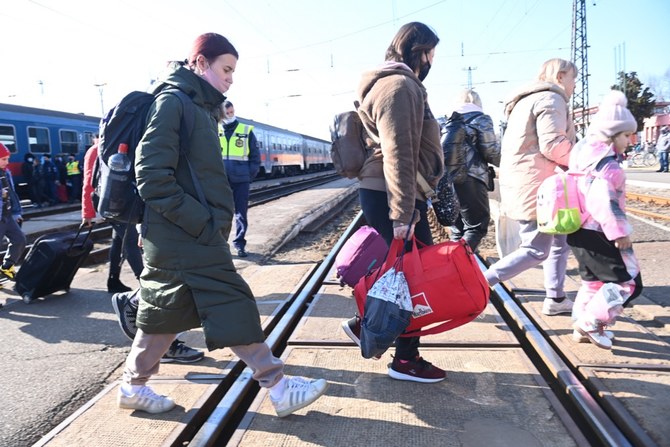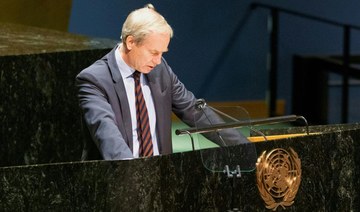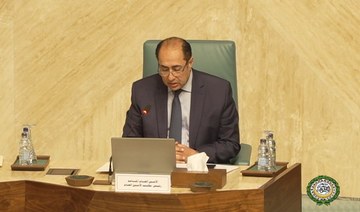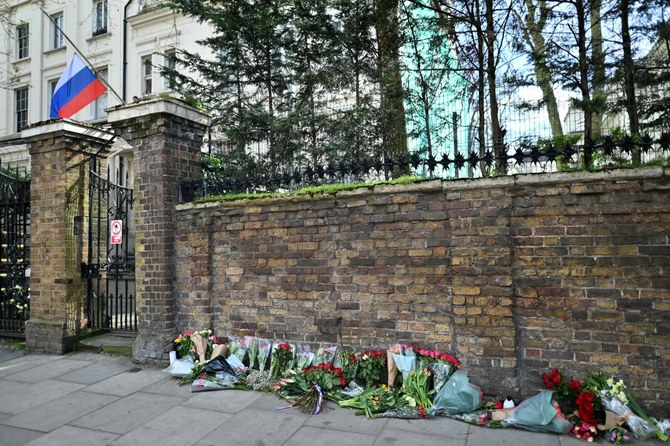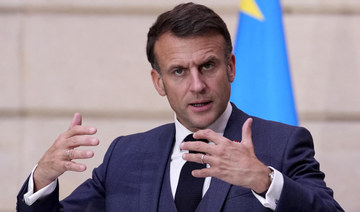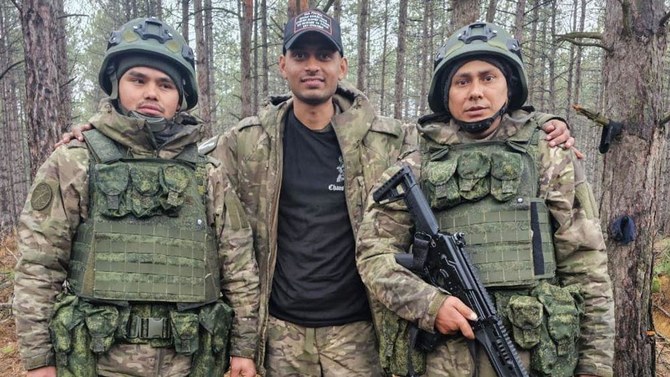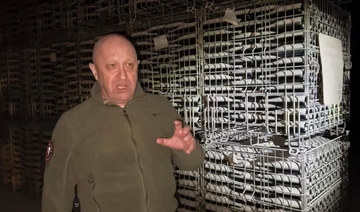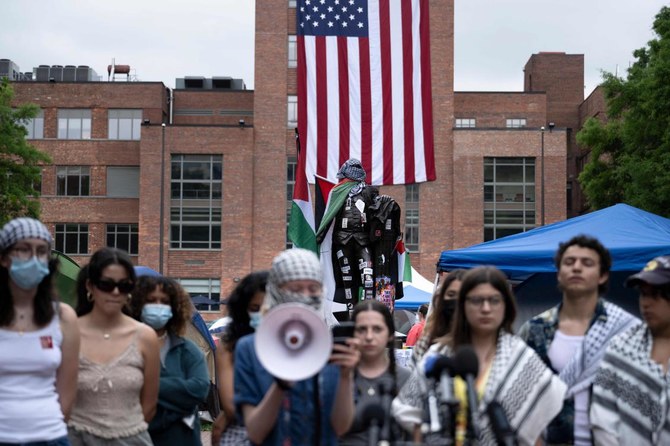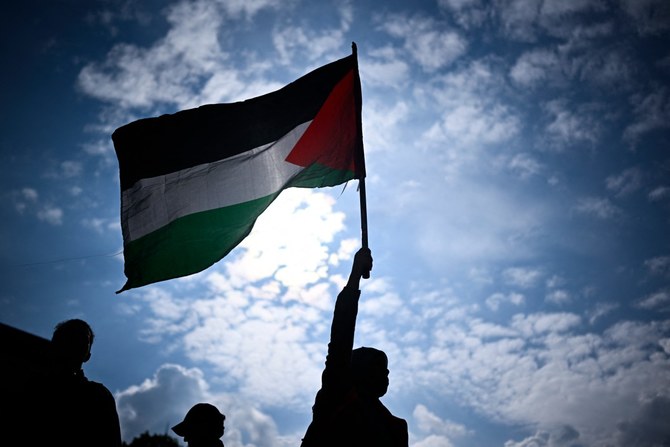JEDDAH: On Feb. 15, nine days before Russia launched its invasion of Ukraine, Antonio Guterres, the secretary-general of the UN, sounded an ominous warning: “There is no alternative to diplomacy. The price in human suffering is too high to contemplate.”
Two weeks later, the UN refugee agency UNHCR and countless other humanitarian organizations are faced with what seems like the worst-case scenario Guterres hoped would be avoided.
In a message posted on Twitter on Monday, Filippo Grandi, the UN’s high commissioner for refugees, wrote: “More than 500,000 refugees have now fled from Ukraine into neighboring countries.”
His post was the latest update of a figure widely viewed as the most reliable indicator of the scale of the human suffering and displacement caused by the Russian invasion, which began on February 24.
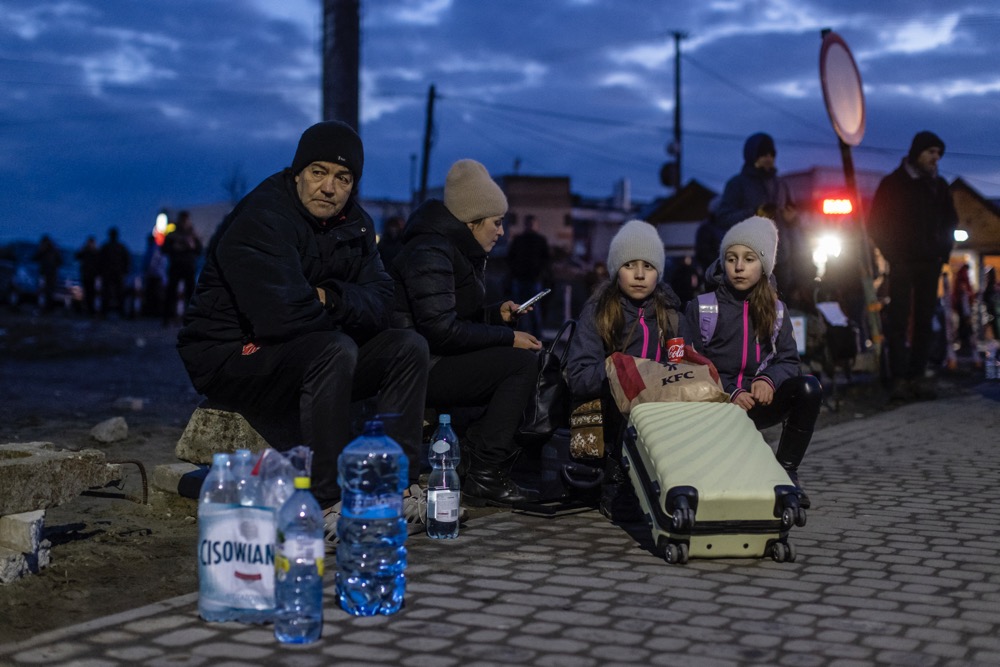
There has been a palpable softening of attitudes toward refugees. (AFP)
By all accounts, the exodus is expected to far exceed the continent’s “refugee summer” of 2015, when about 1 million refugees and asylum seekers, most of them from Syrian war zones, made their way to Central Europe, primarily Germany.
Grandi has conveyed his “heartfelt thanks to the governments and people of countries keeping their borders open” — but the crisis is still in its early days and the UNHCR has said it is planning to deal with up to 4 million refugees if the situation continues to deteriorate. Unless the direct talks between Russian and Ukrainian officials that began on Monday in Belarus succeed in ending hostilities, the human tide flowing out of Ukraine is likely to keep growing.
Janez Lenarcic, the EU’s crisis management commissioner, fears the number of refugees could could be even higher. He warned on Sunday that up to seven million people could be displaced and 18 million “affected in humanitarian terms.”
He added: “We are witnessing what could become the largest humanitarian crisis on our European continent in many, many years.”
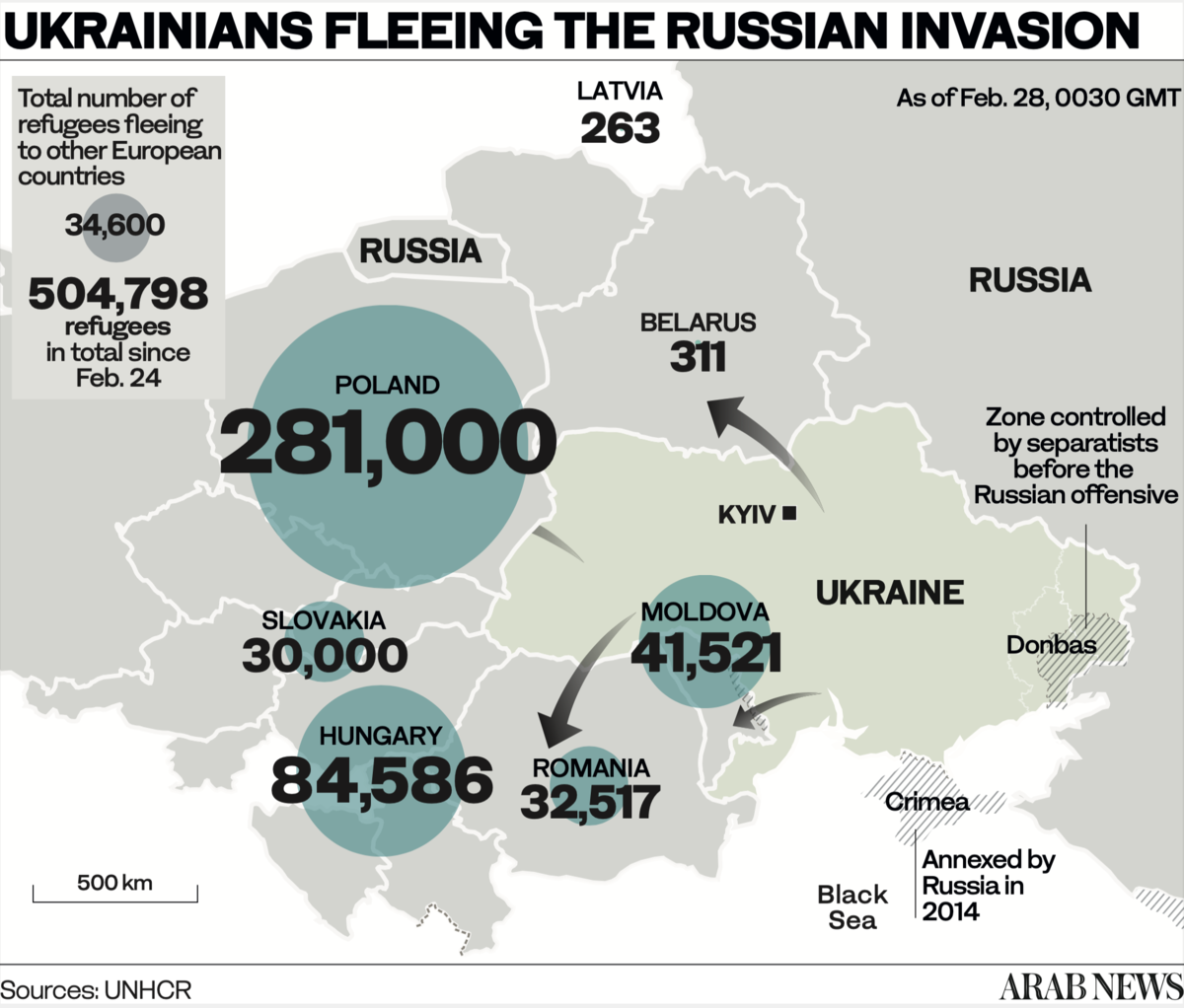
So far, five of Ukraine’s neighbors are bearing the brunt of the refugee crisis: Poland, Hungary, Romania, Moldova and Slovakia, all of which have proved welcoming.
In Hungary, more than 60,000 Ukrainians have crossed through the border town of Zahony and continued on to nearby villages and towns in the Eastern Great Plain.
One teenager who made it with a group of family and friends to Hungary described to Arab News, in a video call on Monday, the shock of sudden displacement and the agony of leaving loved ones behind. Lina, a 16-year-old from the Ukrainian capital, Kyiv, is now staying in Debrecen with a couple who opened their home to her group and another family, nine people in total.
She said she and her family are unharmed but the journey was harrowing and physically exhausting. The dangers along the route kept her, her cousin Bohdan, 15, and Natasha, a family friend acting as their guardian, constantly on edge as they traveled for four days, with minimal sleep, to reach the border before the shelling got worse.
Her father and mother remained behind as Ukraine’s President Volodymyr Zelenskyy declared martial law, temporarily preventing men between the ages of 18 and 60 from leaving the country, Lina said. She added that an exception was granted for her 18-year-old brother, who has cerebral palsy.
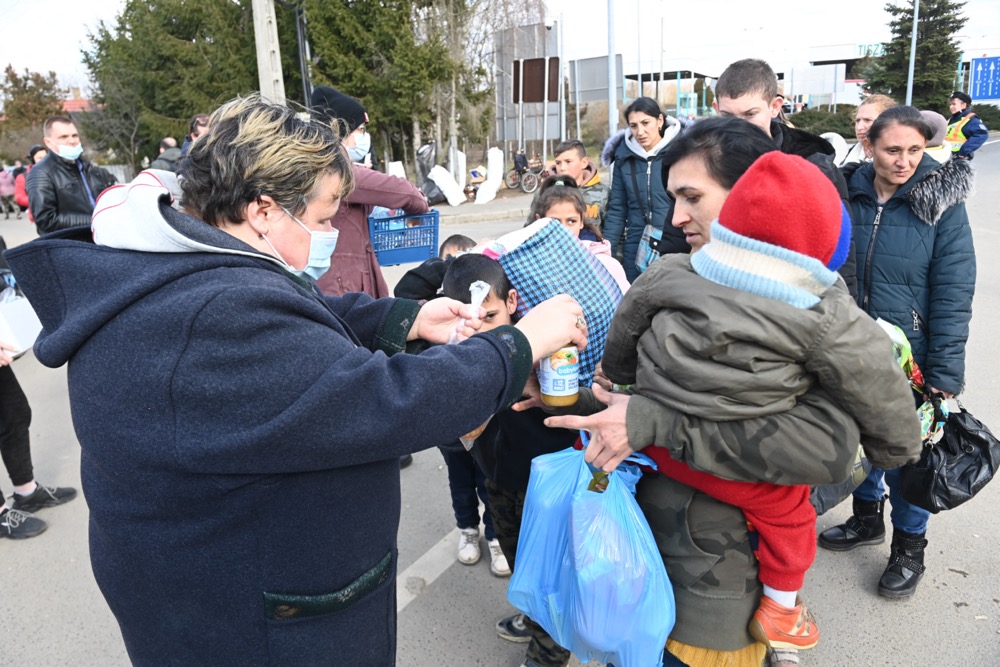
The exodus is expected to far exceed the continent’s “refugee summer” of 2015. (AFP)
The past few days have gone by in a blur for Lina’s group. “When we were in Kyiv, we did not know when the war would start, so we had food, water and some stuff,” she said. “Last Thursday we woke up to news that the war had started. We were scared. We went to hide in the basement; there were three families in total, including three mothers and 11 children.
“We wanted to protect our family, so we decided to either leave the country or do anything to be safe since we did not know what would happen next.”
Lina says she hopes that the war will end soon, Ukraine will remain free and she can return home. But for now, she said: “Our (family) are still there, so we are worried about them.”

One positive development has been a palpable softening of attitudes toward refugees. Ursula von der Leyen, the president of the European Commission, declared: “Everyone who has to flee (Russian President Vladimir) Putin’s bombs will be welcomed with open arms.”
Just weeks ago Poland, which was already home to 1.5 million Ukrainians before the Russian invasion, was fortifying its border with Belarus to keep out refugees and asylum-seekers from Iraq and Afghanistan, along with other migrants.
But on Sunday the AFP news agency, quoting Polish frontier guards, said that 196,000 Ukrainians had already crossed the border, with 50,000 arriving on Friday alone. It said 90 percent of the refugees are being put up by friends or relatives, and that nine reception centers have been set up close to the frontier.
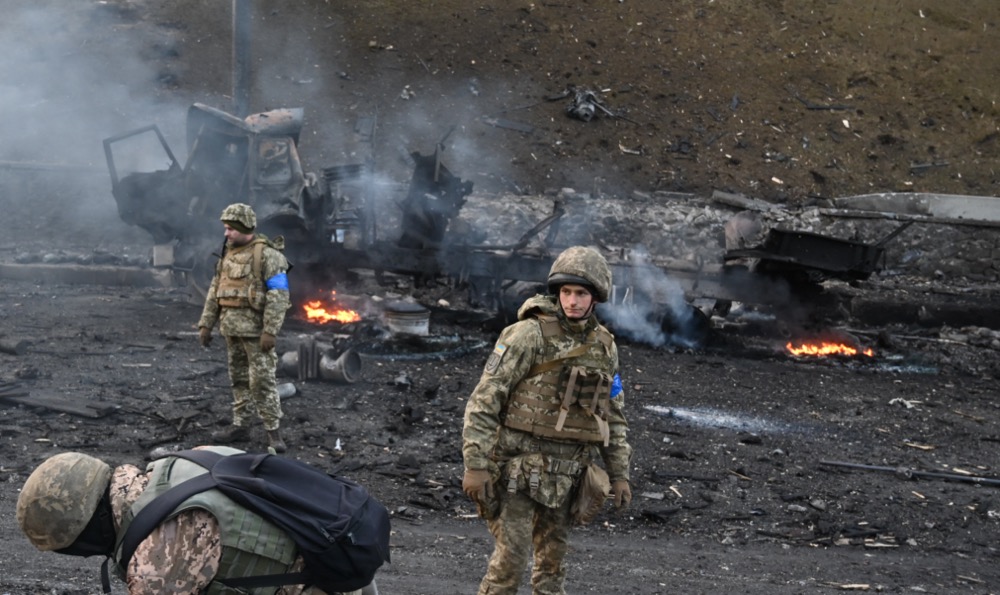
Antonio Guterres: “There is no alternative to diplomacy. The price in human suffering is too high to contemplate.” (AFP)
Nancy Faeser, Germany’s interior minister, commended Poland for “taking in refugees and doing it in an excellent way” and added: “We are now trying to support Poland logistically.”
Across Poland, people are mobilizing with offers of accommodation, money, clothes and work for the new arrivals, according to the AFP report.
However, many Ukrainians trying to leave their country have to run a gauntlet of queues at border crossings, some of which are said to be 40 miles long. At some of the 80 or more checkpoints, the process of getting to the other side takes days.
For 62-year-old Petro Kranic and his wife Luba, for example, the relief they felt on arriving at the border with Poland was mixed with disappointment when they had to wait a whole day to cross, even though their final destination was not Poland but Estonia.
“On Thursday, as soon as the bombing started, we headed straight to Palats Sportu (a station on the Kyiv Metro line), where we took shelter for two nights,” Kranic told Arab News.
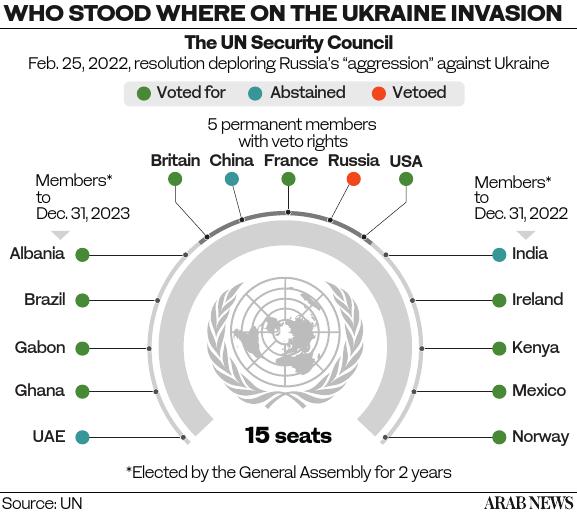
“When the situation seemed to get worse, we knew that we had to leave. My wife’s sister, who lives and works in Estonia, had been asking us to come and stay with her from the time Russian troops began massing on Ukraine’s borders.”
In addition to the threat of war, the Kranics could not risk remaining in Ukraine for another important reason: Luba has just completed a final round of treatments for breast cancer and will require follow-up medical therapy.
Kranic said that after an exhausting wait at the Polish border, they went to Lviv, a city in western Ukraine around 70 kilometers away, where they have relatives, before returning to the border to continue their journey.
“It took us many hours before some Ukrainian volunteers allowed us to pass through,” he said. “A train ride that would normally take seven hours exceeded 15 hours in the end.”
Most members of Kranic’s family are still in Ukraine as the men are of military age. One brother, a truck driver who transports goods across Europe, is returning to the country to join the reserve, while another is waiting for a call for reservists to report for duty.
“They insist on staying back to defend their country,” said Luba. “None of us believed that there would be an attack but once it happened, they decided to fight for the land they love and not lose it again.”



